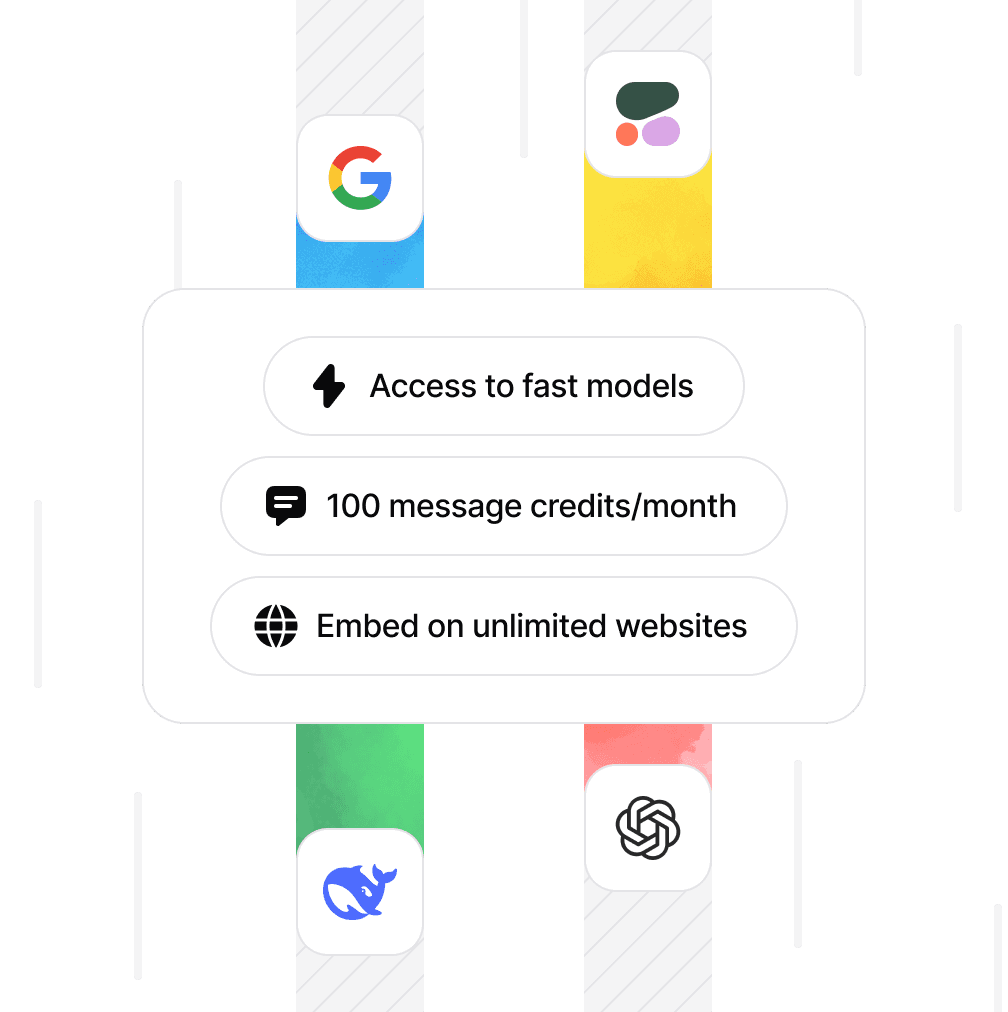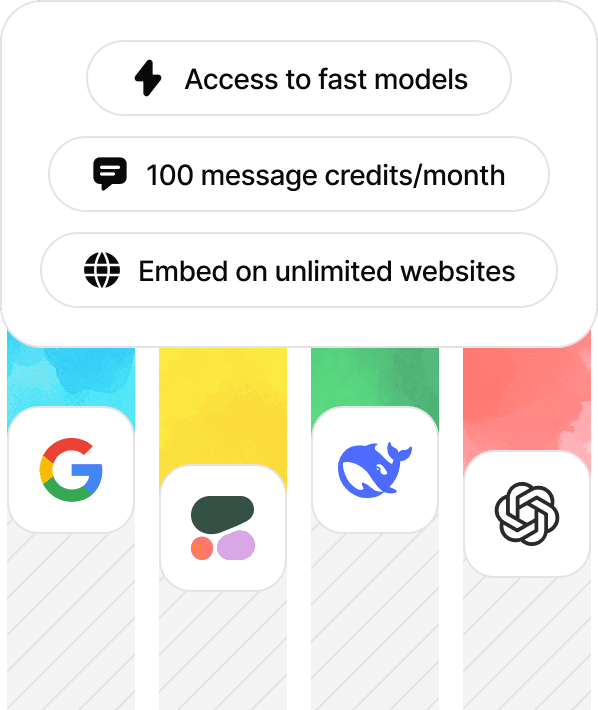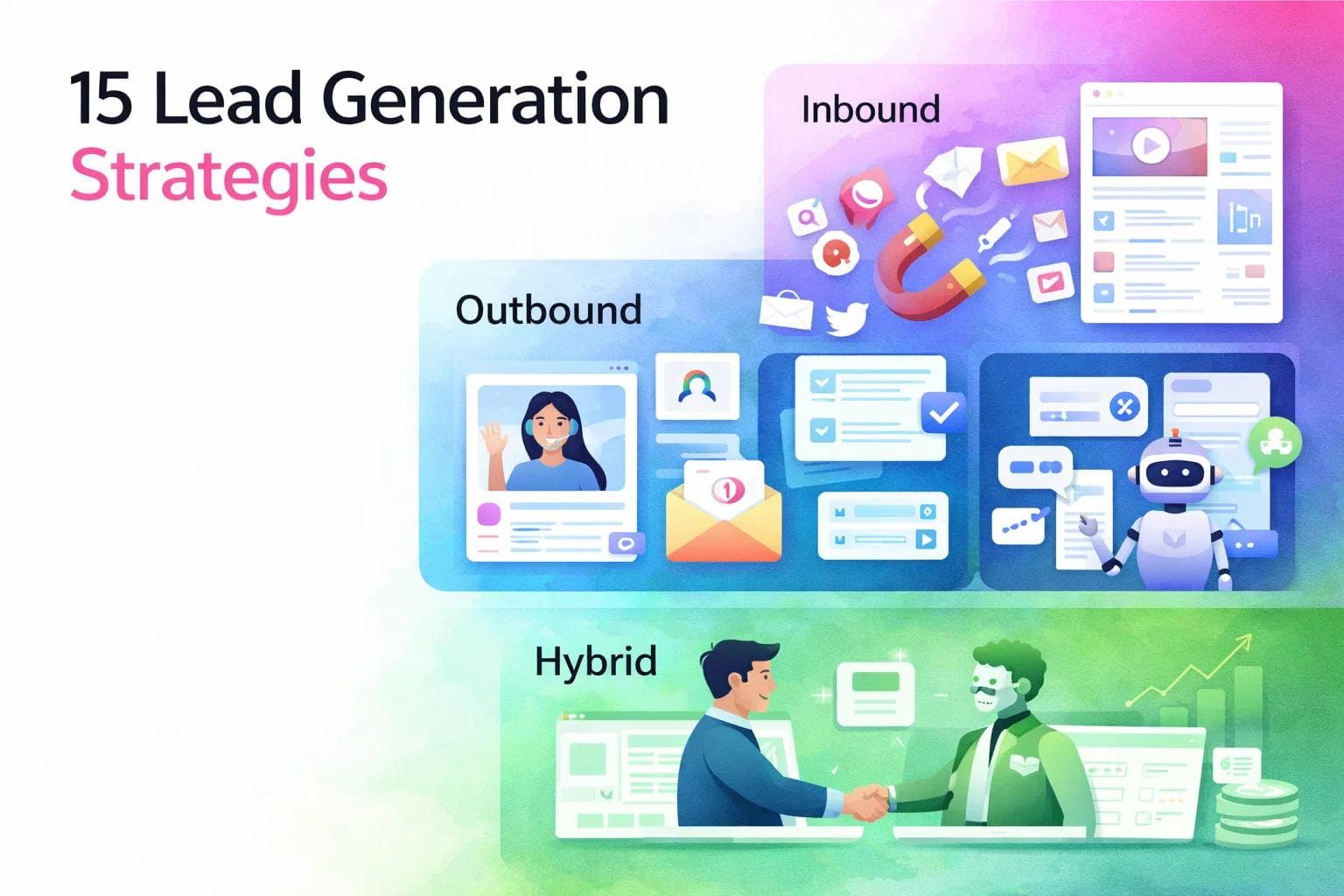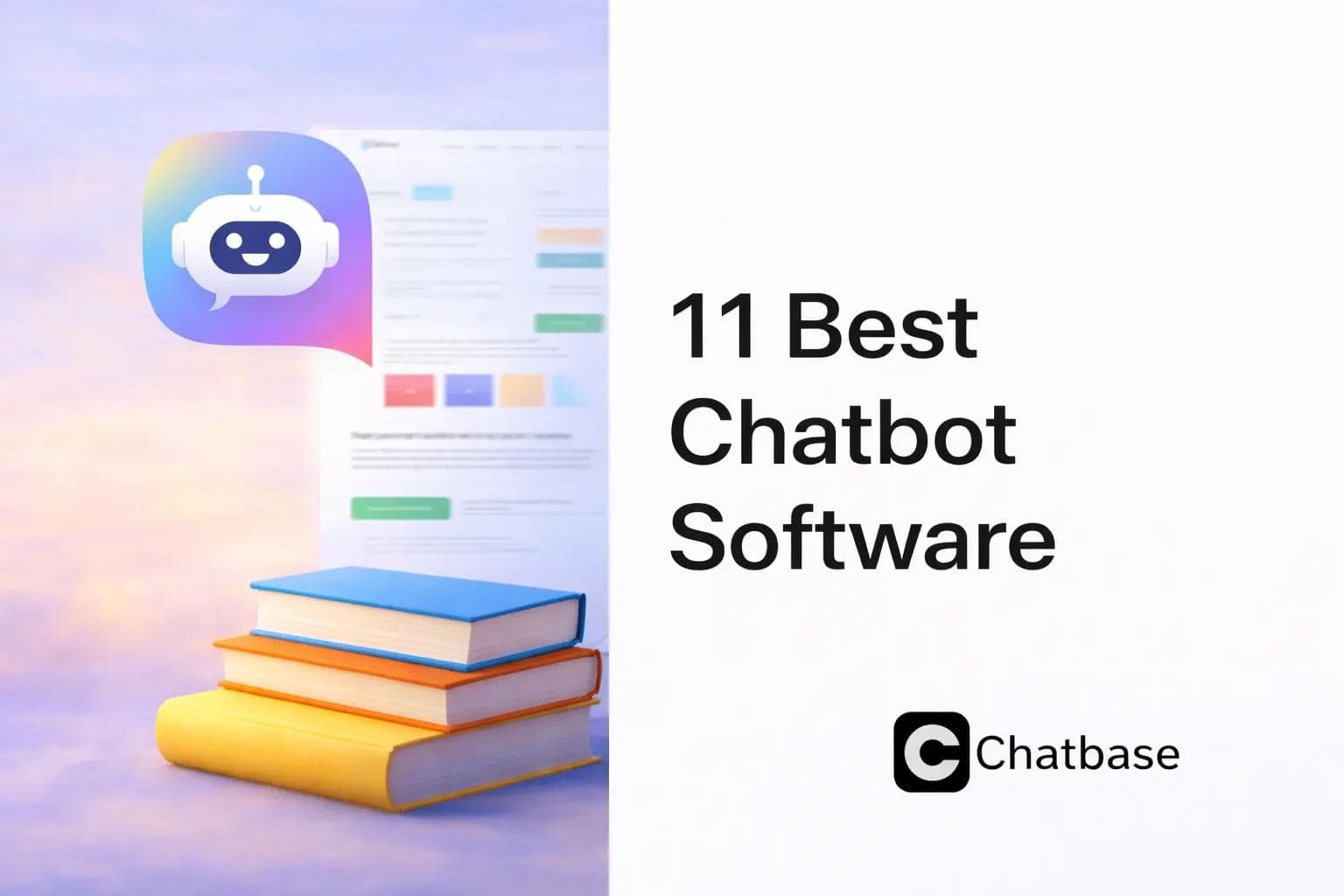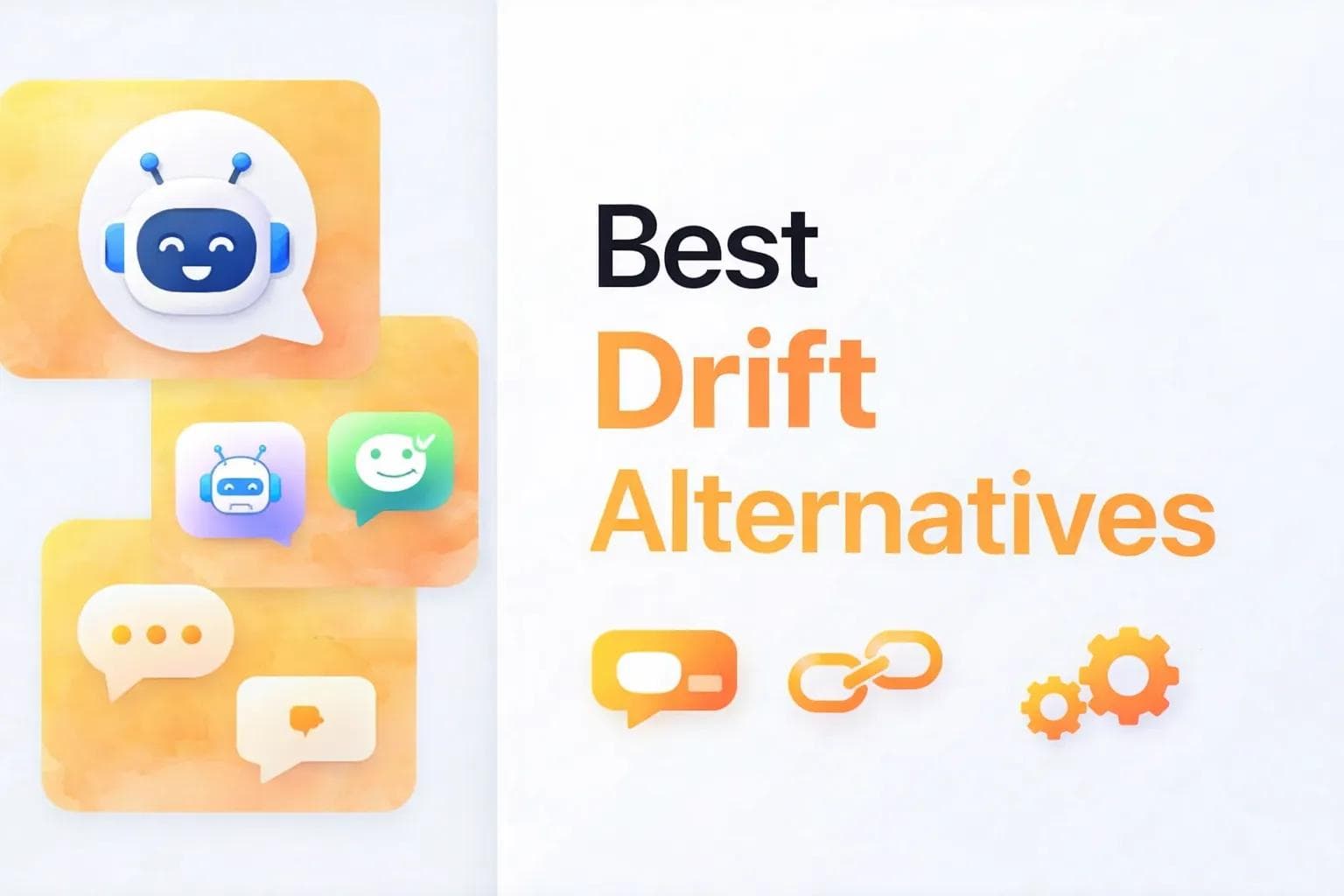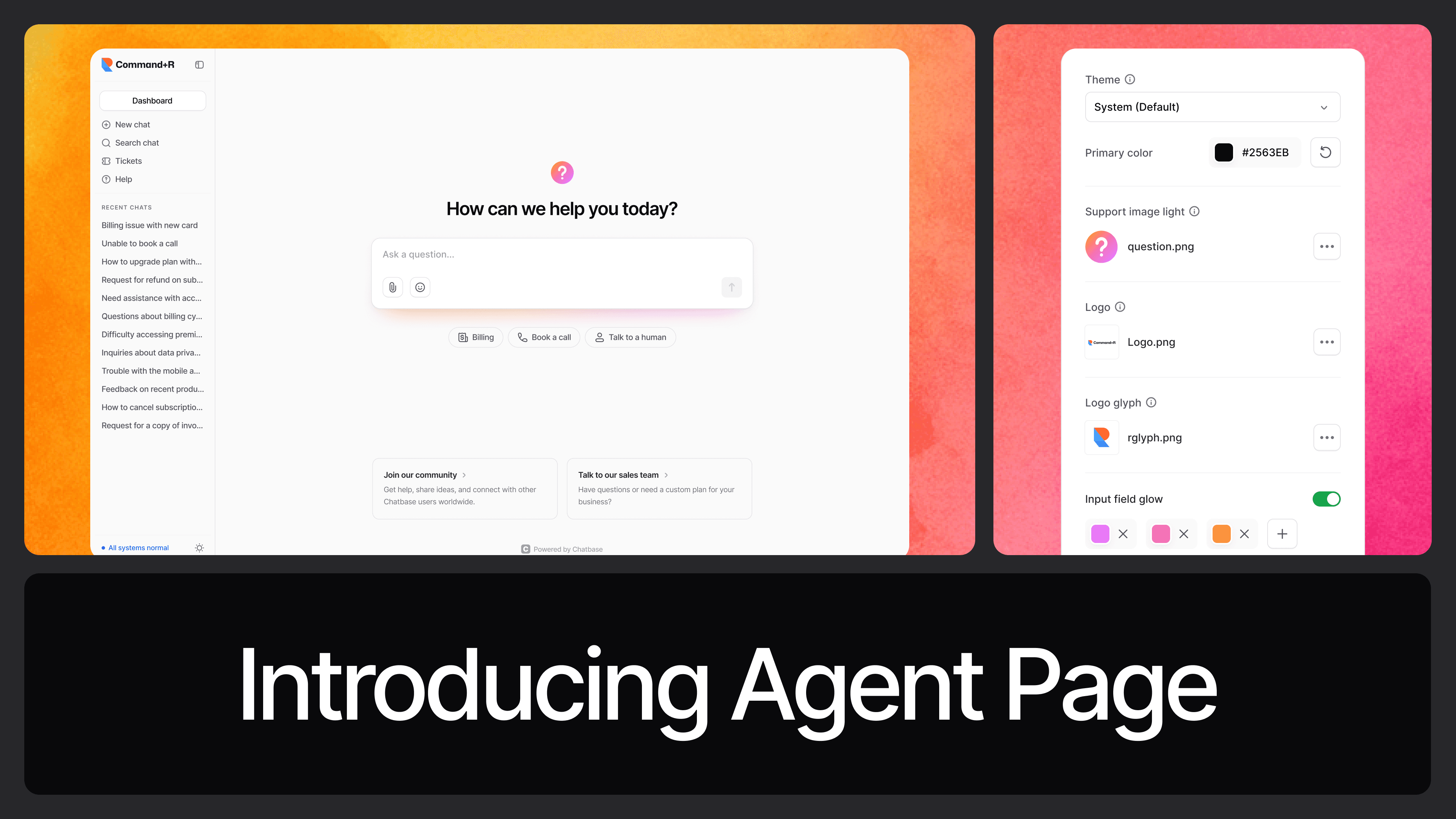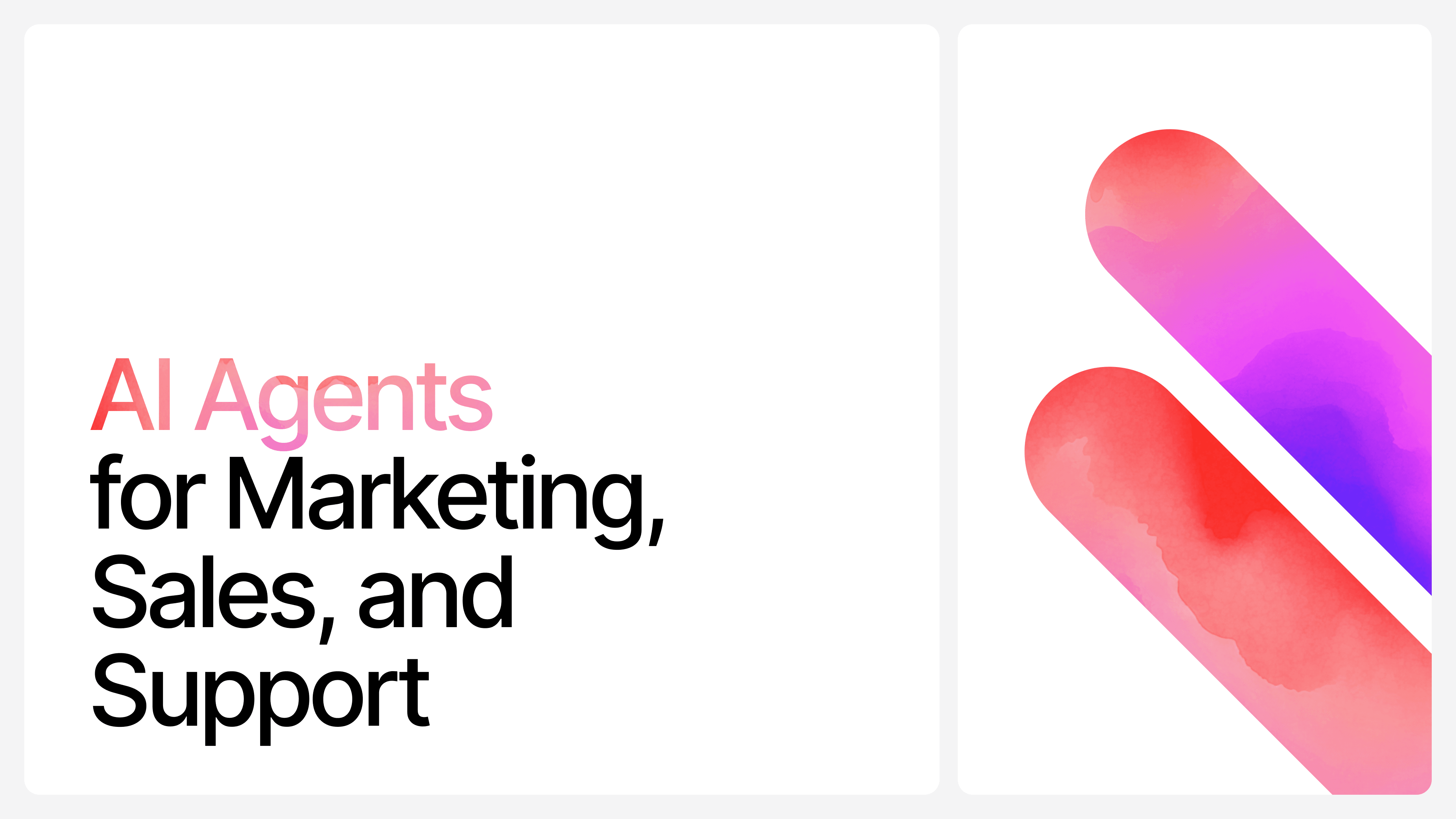Customer Support Chatbot: 2026 Buying Guide
Max T
Jun 18, 2025
10 min read
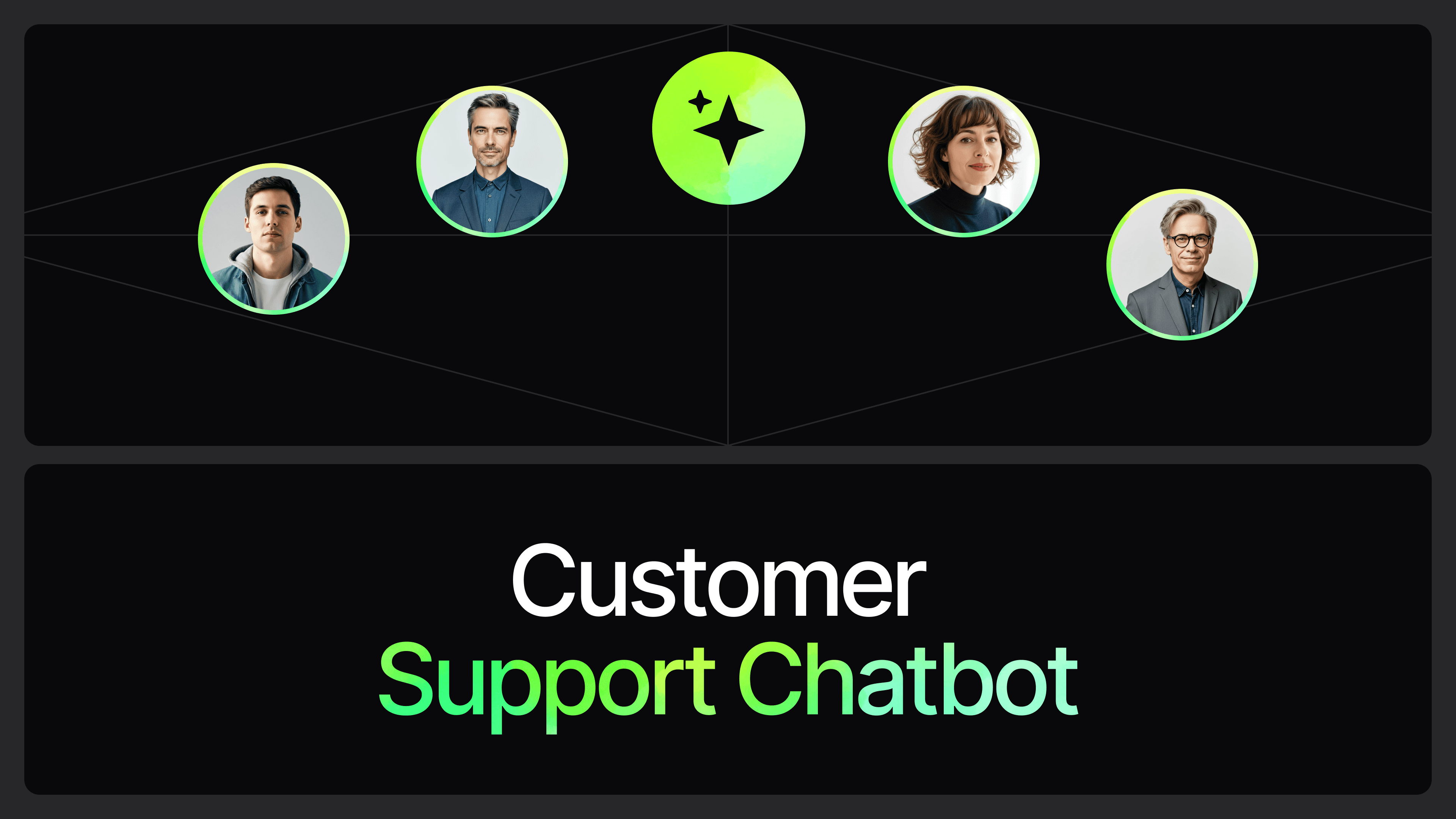
If you're looking to use an AI chatbot for customer support, this guide gives you everything you need to get started: what it is, why it matters, how to choose the right one, and how to actually start using it.
Customer support chatbots are no longer just a nice-to-have. They're becoming a standard way for businesses to handle support faster, more efficiently, and with less overhead. But picking the right one takes more than guesswork.
This guide breaks it down. We’ll cover what a customer support chatbot does, the real benefits, what to watch out for, and which tools are worth your attention.
Whether you’re just starting out or looking to upgrade what you already have, this is your starting point.
What Is a Customer Support Chatbot?
A customer support chatbot is a tool that uses AI to handle customer questions and requests automatically. Instead of a human agent replying to every message, the chatbot responds in real time, often directly on your website, inside your app, or through platforms like WhatsApp or Messenger.
It’s designed to understand customer queries and provide helpful responses.That includes answering common questions, guiding users through processes like returns or account setup, checking order status, booking appointments, and even escalating more complex issues to a human agent when needed.
Some customer support chatbots are rule-based, following preset flows. Others use natural language processing (NLP) and machine learning to understand language and improve over time. The more advanced ones can connect to your existing data, like help docs, product pages, or FAQs, and answer based on that information.
The goal is simple: reduce the time it takes to get help, without sacrificing accuracy or support quality.
Benefits of a Customer Support Chatbot
A customer support chatbot helps you do more with less.
If you're handling customer support manually, there’s a limit to how many people you can help at once. A chatbot removes that ceiling. It responds instantly, 24/7, and handles multiple conversations at the same time.
Here’s what that translates to in practice:
- Faster response times Customers don’t wait. A chatbot replies immediately, even during off-hours or peak traffic.
- Lower support workloadIt takes care of repetitive questions like “Where’s my order?” or “How do I reset my password?” so your team can focus on the real problems.
- Better customer experience People get answers quickly, in plain language, without needing to dig through your site or email you.
- Scalability As your customer base grows, your support doesn't have to. A single chatbot can handle thousands of users without extra hires.
- Consistency It gives the same accurate answer every time, pulled from your verified knowledge base or product data.
For businesses trying to balance growth and support quality, a chatbot is necessary.
The Buyer’s Guide: Choosing the Right Customer Support Chatbot
There are dozens of AI tools out there calling themselves chatbots. Some are basic. Some are bloated. Some work well in theory but break when you try to scale or plug them into a real support workflow.
In this section, we’ll go over specific options that are built for actual customer support, not just surface-level automation. And we’ll start with the ones that get it right on both ends: ease of use and depth of capability.
1. Chatbase
If you’re looking for a support chatbot that just works — and works well — Chatbase is one of the easiest ways to get started.
It’s built to help businesses of all sizes handle customer support using AI, without needing a developer or a separate support team to manage the setup.
What makes Chatbase different?
- Trains on your data instantly Feed it your website, help center, product pages, or custom docs — Chatbase uses that information to start answering questions accurately right away.
- Takes action, not just messagesWith AI Actions, the chatbot can do things like collect leads, book meetings, answer product availability questions, check order status, create support tickets, and more.
- Multi-channel supportDeploy the chatbot on your website, Messenger, WhatsApp, Instagram, and Slack. It supports the platforms where your customers already are.
- No-code customizationYou can define the chatbot’s tone, style, and limits (what it should and shouldn’t say).It’s built to be flexible without being overwhelming.
- Analytics built inGet insights on what users are asking, how chats are going, and where customers might be getting stuck
- Built for scaling businesses Whether you’re a solo founder or a company with a full support team, Chatbase grows with you. You can start with basic support and later add more advanced workflows like CRM integration, automated follow-ups, or Slack-based escalation.
Pricing:Starts at $40/month (Hobby plan), with the Pro plan peaking at $500/month.Even the lower-tier plans offer generous access with minimal restrictions — no per-agent seat limits or rigid user caps. For larger teams, custom enterprise plans are available with full flexibility.
Best for:Startups, SaaS products, e-commerce brands, service providers — any team that wants smart, flexible, and action-driven customer support without technical overhead.
2. Zendesk
Zendesk is one of the most recognizable names in customer support, and its AI-powered chatbot offering fits best within its larger suite of tools. If your team already uses Zendesk for tickets or live chat, adding the chatbot is a natural extension.
The bot is tightly integrated with Zendesk’s ecosystem, which means it works smoothly with your knowledge base, help desk, and CRM. It also supports AI-driven automation, handling repetitive questions and routing more complex issues to agents when needed.
What sets Zendesk apart is its AI-powered analytics and QA tools. It can analyze conversation data automatically, surface trends, monitor response quality, and generate reports, giving managers a better view of support performance without needing third-party tools.
It also offers broad integration support, allowing you to connect Zendesk to external systems and customize workflows across departments.
Pricing:Zendesk’s chatbot pricing starts at $1 per resolution. While this sounds flexible, costs can rise fast at scale, especially for high-volume businesses. Custom plans are available for enterprise-level needs.
Best for:Teams already using Zendesk or those who want advanced analytics, automation, and integrations baked into a broader support platform.
3. Fin by Intercom
Fin, Intercom’s AI chatbot, is powered by OpenAI and built to automate support with a more natural, intelligent approach. It handles routine tasks, answers complex questions, and follows up with clarifying responses when needed, making it more capable than a basic rule-based bot.
It also offers topic-level understanding, allowing it to respond based on context rather than just keywords. Support teams can track performance through built-in analytics and reporting tools, which help surface trends and improve answer quality over time.
Pricing:Fin starts at $29 per seat/month, billed annually, which can be costly for larger teams. On top of that, you’re also charged around $0.99 per resolution, so overall pricing tends to sit on the high side, especially at scale.
Best for: Support teams already using Intercom that want a high-quality, OpenAI-powered chatbot with built-in analytics — and can manage the higher cost.
4. Chatbot
Chatbot (from chatbot.com) offers a straightforward, rule-based customer support chatbot for teams that want quick setup and control over scripted workflows.
It’s designed around decision-tree logic. That means it doesn’t rely on AI to understand questions, but instead follows preset paths to guide users through things like FAQ responses, lead capture, or appointment scheduling. For businesses with clearly defined support paths, that works fine, but it can feel limited in more nuanced or open-ended conversations.
You can build bots visually, integrate them with your site or tools like Messenger, and pass data into CRMs or email automation tools via webhooks.
Pricing:
- Starter Plan: $52/month
- Team Plan: $142/month
- Business Plan: $424/month
Plans vary by chatbot volume, user access, and integrations. Pricing is flat — no per-resolution or usage-based billing — but it scales quickly depending on your needs.
Best for:Teams that want a clear, rule-based chatbot with predictable pricing and simple flows, without deep AI complexity.
5. HubSpot — CRM-Integrated Chatbot with Strong Rule-Based Logic
HubSpot’s chatbot tool is part of its broader CRM and service ecosystem. It’s built to support structured, rules-driven workflows like lead capture, appointment booking, and ticket routing — especially useful for businesses already using HubSpot for sales or marketing.
That said, the chatbot has a lot of rule-based components. It follows predefined logic trees rather than adapting dynamically to user input. Compared to AI-first tools like Chatbase, HubSpot’s chatbot can feel limited in flexibility and real-time understanding.
However, the big advantage is how well it connects with the rest of HubSpot’s tools. The chatbot can log CRM activity, create tickets, update contact records, and even trigger automated workflows — all from inside a single system.
Pricing:Starts at around $15/month for 2 paid users.There’s a free plan, but it comes with limited features and tight restrictions on what the chatbot can actually do. Access to more advanced tools — like workflows, automation, and full chatbot customization — comes in higher-tier plans, which can scale quickly based on your contact volume and add-ons.
Best for:Teams already invested in HubSpot that want a simple, CRM-connected chatbot with structured automation, and don’t need deep AI flexibility.
6. Ada
Ada is an AI-powered customer support chatbot built to help larger businesses automate high volumes of customer conversations with minimal agent involvement. It’s focused on automated resolution at scale, using natural language understanding to deliver helpful, context-aware replies.
Ada can handle a wide range of tasks from answering FAQs to updating account details, booking actions, escalating issues, and more — all while integrating into CRMs, help desks, and third-party systems. It also supports multilingual conversations and allows for some customization of tone and brand voice.
It’s designed for enterprise-level operations, which means it’s powerful, but often requires some setup, alignment with your support workflows, and close coordination with their team.
Pricing: Ada doesn’t list public pricing. You’ll need to contact their sales team for a custom quote based on your use case, team size, and resolution volume. Pricing can vary widely depending on scale and feature requirements.
Best for: Enterprise teams that need a scalable, AI-driven chatbot solution with deep automation and integration capabilities — and are prepared for a more customized pricing model.
7. Zoho SalesIQ (ZoBot)
ZoBot is Zoho’s chatbot builder, available through Zoho SalesIQ, their customer engagement and live chat platform. It’s designed to help teams build hybrid bots that combine predefined responses with live agent handoff when needed.
You build flows using a drag-and-drop interface, allowing you to create structured conversations, set predefined replies, and route users based on inputs. It’s a good fit for support teams that want predictable automation and already use Zoho’s ecosystem.
However, ZoBot is more rule-based than adaptive. It doesn’t offer the deep AI flexibility or natural language learning found in tools like Chatbase. It’s functional, but you’ll need to hard-code most flows and updates manually.
Pricing:Starts at $7 per operator/month.Pricing increases based on the number of operators and the plan tier you choose. Higher tiers unlock more advanced features and chatbot capacity.
Best for: Teams using Zoho tools that want a structured, rules-driven chatbot experience with live agent integration, but don’t need full AI automation.
8. Certainly
Certainly is a chatbot platform built specifically for e-commerce businesses. It focuses on helping online stores automate customer conversations around product questions, order tracking, returns, and more — with flows tailored to the buying journey.
The platform offers a visual bot-building interface, support for multiple languages, and integrations with e-commerce systems like Shopify, Magento, and Zendesk. It’s designed to improve sales and reduce support load by automating key customer touchpoints across the funnel.
That said, Certainly is less general-purpose than other tools on this list. It’s highly focused on e-commerce use cases — which is great if that’s your niche, but limiting if you need broader support features or deep AI customization.
Pricing: Starts at around €2,000/month. Certainly’s pricing is on the premium side and geared toward established e-commerce operations. Smaller businesses may find it hard to justify the investment unless they’re operating at scale.
Best for: E-commerce teams with high traffic and complex product catalogs who want a tailored chatbot solution focused on sales, support, and post-purchase automation.
Choose the Right Chatbot
Customer support has changed.. Customers expect answers immediately, not tickets. They expect clarity, not runarounds. And frankly, they don’t care whether it’s a human or AI responding; they just want it done, fast and right.
The tools we’ve explored in this guide all serve different needs, but if you're serious about building support that scales and you want a solution that combines ease of use, deep customization, and real AI power, then Chatbase is the place to start.
It’s not just another chatbot. It’s a fully controllable, action-ready AI support agent that understands your business and grows with it.
You’ve done your research. Now it’s time to put it to work. → Try Chatbase today — and launch your support chatbot in minutes.
Share this article:
